Richard Wagner
Die Walküre
Orchester der Tiroler Festspiele Erl
Conductor Erik Nielsen
Stage Director Brigitte Fassbaender
Stage & Costume Design Kaspar Glarner
Light Jan Hartmann
Video Bibi Abel
Dramaturgie Mareike Wink
Siegmund Clay Hilley
Wotan Simon Bailey
Sieglinde Irina Simmes
Brünnhilde Christiane Libor
Fricka Dshamilja Kaiser
Hunding Anthony Robin Schneider
Gerlinde Mojca Bitenc
Helmwige Ekin Su Paker
Ortlinde Florence Losseau
Waltraute Corinna Scheurle
Roßweiße Anna-Katharina Tonauer
Siegrune Stefanie Irányi
Grimgerde Marta Herman
Schwertleite Ksenia Leonidova
"Die Walküre, the first day of Richard Wagner’s tetralogy Der Ring des Nibelungen, continues the story about the downfall of the world of the gods. Wotan’s despair and resulting bitter resignation are compellingly predicted in Das Rheingold, the links to the events in the powerful drama Walküre are audibly eminent. Not only through Wagner’s lofty artificial language, when at the end of Rheingold the words of Wotan and Loge look far ahead to Götterdämmerung, but also through Wagner’s magnificent leitmotifs, which bring situations to mind musically in Walküre which have taken place in Rheingold. The hero Wotan dreamed of from Rheingold comes to life in Walküre and we encounter him as Siegmund in the passionate but doomed bond with his
twin sister Sieglinde. Both were fathered by Wotan with a woman from the human race of the Wälsungen. The hero Siegmund is sacrificed and succeeded by Siegfried, whose heroism remains somewhat questionable. He too leaves the world of the “Ring”
without being able to fulfil Wotan’s dream of freedom and independence. Of Wotan’s nine daughters, the Valkyries, Brünnhilde, who was born of the relationship with Erda, is his “favourite girl”, his alter ego, the title figure of this first day which develops
so tragically. Disregarding Wotan’s command, she cannot prevent the death of Siegmund, the hero, her half-brother, sacrificed by Wotan, and is banished by the father of the gods to the world of human beings, taking away her divinity because of her disobedience, until Siegfried saves her from banishment … And the story of the tetralogy becomes more and more
complicated, ingeniously conceived by Wagner, who with his Ring created a pioneering, visionary drama about mankind and the end of time valid to this day."
Brigitte Fassbaender
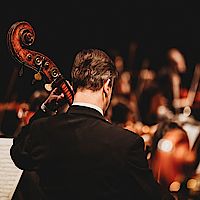
Orchester der Tiroler Festspiele Erl
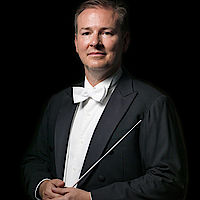
Erik Nielsen
Conductor

Brigitte Fassbaender
Stage Director
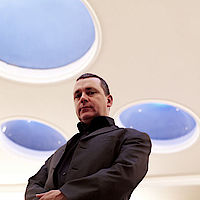
Kaspar Glarner
Stage & Costume Design

Jan Hartmann
Light
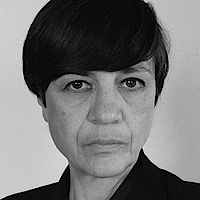
Bibi Abel
Video
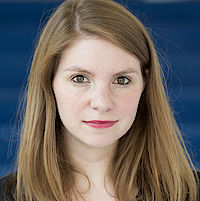
Mareike Wink
Dramaturgie
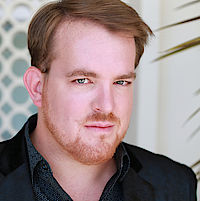
Clay Hilley
Siegmund
Simon Bailey
Wotan
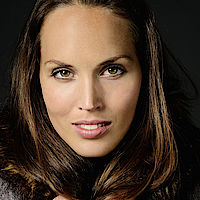
Irina Simmes
Sieglinde
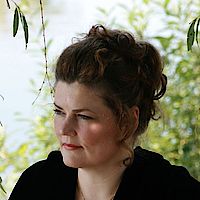
Christiane Libor
Brünnhilde
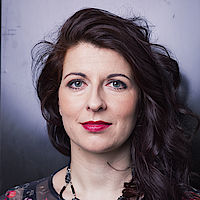
Dshamilja Kaiser
Fricka
Anthony Robin Schneider
Hunding

Mojca Bitenc
Gerlinde

Ekin Su Paker
Helmwige
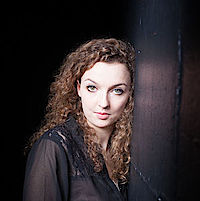
Florence Losseau
Ortlinde
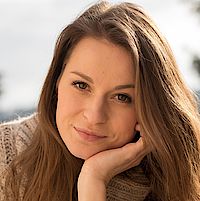
Corinna Scheurle
Waltraute
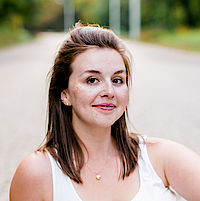
Anna-Katharina Tonauer
Roßweiße
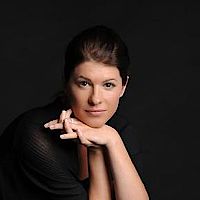
Stefanie Irányi
Siegrune
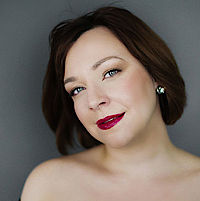
Marta Herman
Grimgerde

Ksenia Leonidova
Schwertleite
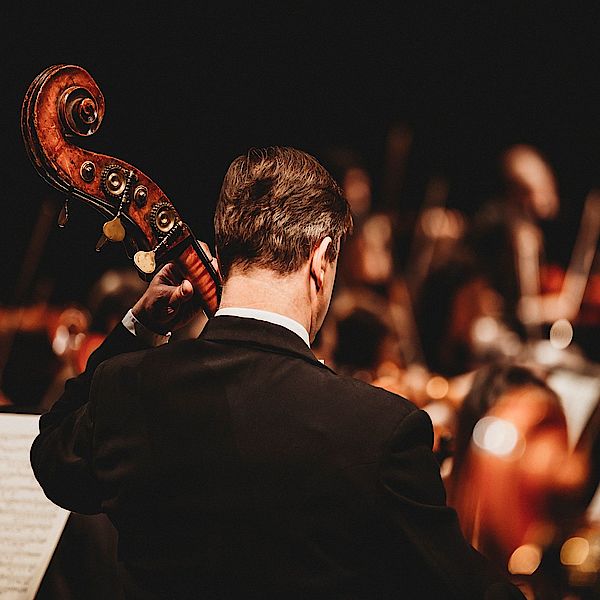
Orchester der Tiroler Festspiele Erl
Musik wächst aus der Begeisterung eines über die Jahre zusammengewachsenen, motivierten und exzellent vorbereiteten Ensembles, das sich einen Ruf als eines der besten Wagnerorchester weltweit erarbeitet und die Tiroler Festspiele Erl international bekannt gemacht hat. 1999 formierte sich das Orchester der Tiroler Festspiele unter der Leitung von Gustav Kuhn, inzwischen spielen Musiker*innen aus 20 Nationen zusammen. Junge Spitzentalente, Musiker*innen aus großen internationalen Orchestern, Kammermusikspezialist*innen und Dozent*innen kommen so jährlich im Sommer und Winter, seit 2017 auch im Herbst und an Ostern im Rahmen der Tiroler Festspiele Erl zusammen. Zum Repertoire des Klangkörpers gehören neben den zehn großen Musikdramen Richard Wagners und Opern von Strauss, Mozart, Beethoven, Verdi und Rossini auch die Symphonien Beethovens und viele weitere zentrale Werke des Konzertrepertoires sowie zeitgenössische Werke und Uraufführungen. Seit der Sommersaison 2022 ist Erik Nielsen Chefdirigent des Orchesters der Tiroler Festspiele Erl.
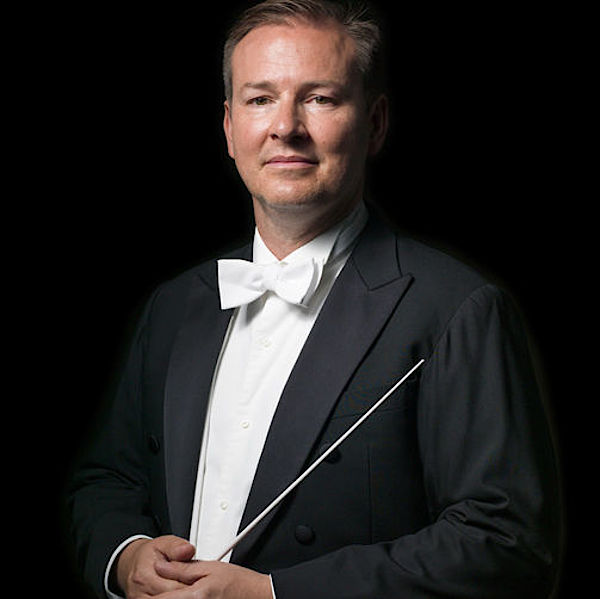
Erik
Nielsen
Erik Nielsen has been chief conductor of the Tyrol Festival Erl since 2022, where he conducts the entire "Ring des Nibelungen" and has already been on the podium for "Le postillon de Lonjumeau" and numerous concerts. Chief conductor of the Bilbao Symphony Orchestra since 2015, he will complete his ninth and final season with the orchestra in 2024. From 2016 to 2018, Erik Nielsen was music director of the Theater Basel.
He also has a decade-long collaboration with the Frankfurt Opera. His most recent engagements include "Rusalka" and "Norma" at the Semperoper Dresden, "Salome" at the Zurich Opera House, the world premiere of Manfred Trojahn's "Eurydice - The Lovers Blind" at De Nationale Opera Amsterdam, "Peter Grimes," "Das Rheingold" and Křenek's "Karl V. " at the Bavarian State Opera, "Pelléas et Mélisande" at the Semperoper Dresden, "Peter Grimes" and Trojahn's "Orest" at the Zurich Opera House, "Billy Budd" and Lachenmann's "Das Mädchen mit den Schwefelhölzern" at the Frankfurt Opera, and "The Rake's Progress" in Budapest. Future plans include "Aida" in Frankfurt and "Oedipus Rex" / "Antigone" at De Nationale Opera Amsterdam.
Concerts have taken Erik Nielsen to Oslo, Manchester, Stockholm, Madrid, Strasbourg, Lisbon, Basel, the Aspen Music Festival and the Interlochen Center for the Arts, among others. After studying harp, oboe and conducting in New York and Philadelphia, he was a member of the Karajan Academy of the Berlin Philharmonic as a harpist.
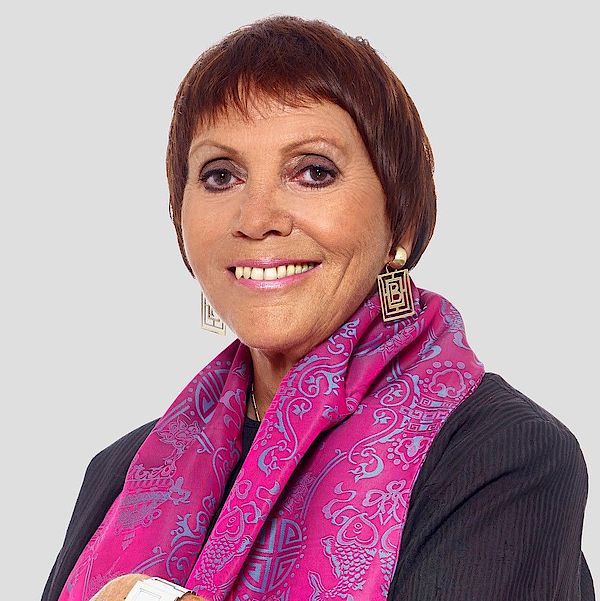
Brigitte
Fassbaender
Brigitte Fassbaender, who is directing the complete "Ring des Nibelungen" in Erl, is one of the most important artists these days. Until 1994 she pursued a sensational international career as a mezzo-soprano, which took her to all the leading opera houses and to the most renowned festivals in the world with the important roles in her field. Some 300 recordings, many of which have received awards, and the majority of which are in the lied and concert repertoire, testify to the importance of the Munich and Vienna Kammersängerin.
Since 1994, Brigitte Fassbaender has devoted herself entirely to directing and has since staged some 90 productions in Germany and abroad. Among her most recent works is the world premiere of Vito Žuraj's / Händl Klaus' opera "Blühen" at the Frankfurt Opera. Between 1995 and 1997 Brigitte Fassbaender was opera director at the Staatstheater Braunschweig, and from 1999 to 2012 she was artistic director of the Tiroler Landestheater Innsbruck.
From 2009 to 2017 she was Artistic Director of the Richard Strauss Festival Garmisch-Partenkirchen. Since 2002 she has directed the festival "Eppaner Liedsommer". The promotion of young talents was and is an important concern for Brigitte Fassbaender: As a sought-after vocal pedagogue, she teaches master classes worldwide. In 2019, her memoirs "Komm' aus dem Staunen nicht heraus" were published.
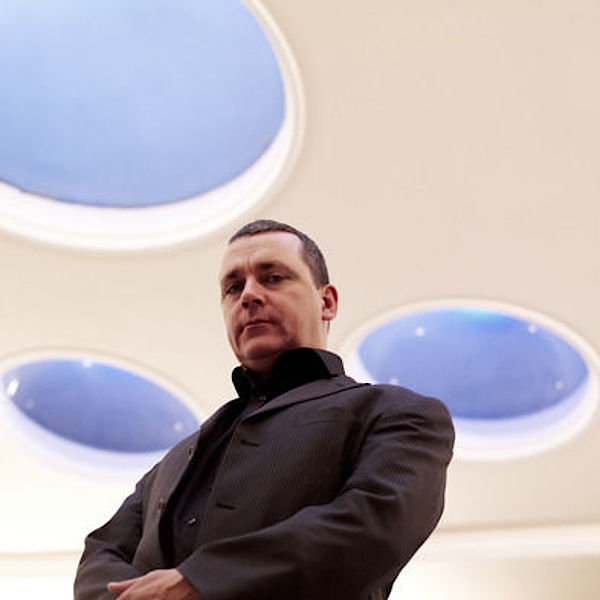
Kaspar
Glarner
Kaspar Glarner was born in Zurich and studied in Paris. He regularly designs sets and costumes for productions by Keith Warner, including "Volo di notte" / "Il prigionero," "Death in Venice," "Falstaff," "Lear" and most recently "Der Zar lässt sich fotografieren" / "Die Kluge" at Oper Frankfurt and "Otello" at the ROH Covent Garden in London. Their joint reading of "Die Meistersinger von Nürnberg" premiered at the Vienna State Opera during the current season.
For Walter Sutcliffe, Kaspar Glarner designed the sets for "Owen Wingrave", "The Turn of the Screw" and "Tiefland" in Toulouse, "Die Gespenstersonate" at Oper Frankfurt, "Rigoletto" in Santiago de Chile and Belfast as well as Gounod's "Faust" at Staatstheater Karlsruhe. Kaspar Glarner also has a longstanding collaboration with Johannes Erath: "Les Contes d'Hoffmann" in Bern, "Aida" in Cologne, "Lohengrin" in Graz and Oslo, "I masnadieri" at the Bavarian State Opera, as well as the world premiere of "Der Mieter" at the Frankfurt Opera and "Die Meistersinger von Nürnberg" in 2022/23.
In Frankfurt he also worked with Anselm Weber on "Lady Macbeth of Mzensk". Kaspar Glarner's work has also been seen in San Francisco, Tokyo, Santiago de Chile, Copenhagen, Prague, Warsaw, Strasbourg, Toulouse and at the Festival-d'Aix-en-Provence. For the Tyrolean Festival Erl he worked on "Le postillon de Lonjumeau" as well as the "Ring des Nibelungen".

Jan
Hartmann
Jan Hartmann, who has already designed the lighting for "Rusalka," "L'elisir d'amore" and "Francesca da Rimini" at the Tyrol Festival Erl and is accompanying the entire "Ring des Nibelungen," has been engaged at the Frankfurt Opera since 1999. There he worked for the first time in 2011 as lighting designer for the production "Nineteen Hundred".
This was followed by, among others. "Idomeneo", "The Golden Dragon", "Julietta", "Le cantatrici villane", "Pierrot lunaire" / "Anna Toll" (world premiere), "Rigoletto", "L'Africaine", "The Cunning Little Vixen", "Dalibor," "The Medium" / "Satyricon," "Pénélope," "La gazzetta," "Amadigi," "A Midsummer Night's Dream," the world premiere "Blühen" and "Le vin herbé."
In 2023/24 he is working on "Der Traumgörge" and "Tannhäuser", among others. In addition, Jan Hartmann has worked for various music theater, dance, drama and film projects, including with the Balthasar Neumann Ensemble for the "Festa Teatrale Carneval" in Hong Kong, with choreographer Deborah Hay for the production "As Holy Sites Go" as well as for "Falstaff" at the Nationaltheater Mannheim. Since 2013 he has been a lecturer in lighting design at the Hochschule für Gestaltung in Offenbach am Main.
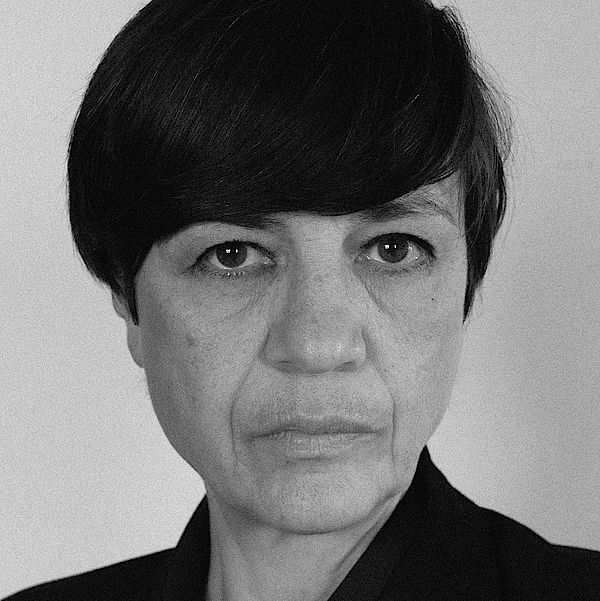
Bibi
Abel
Video artist Bibi Abel studied at the Cologne Werkkunstschule and completed further training as a multimedia developer. Engagements have taken her to the Cologne Opera, the Frankfurt Opera, the Aalto Music Theater in Essen, the Bavarian State Opera in Munich, the Theater an der Wien, the playhouses of Bochum, Düsseldorf, Cologne, Graz and Zurich, the Theater Gessnerallee in Zurich, the Maxim Gorki Theater in Berlin, the Teatro Massimo in Palermo and the Teatro dell'Opera in Rome.
Bibi Abel has a continuous collaboration with the director Johannes Erath. Other directors she has worked with include David Bösch, Jan Bosse, Vincent Boussard, Agnese Cornelio, Heike M. Götze, Tilmann Köhler, Andreas Kriegenburg, Vera Nemirova and Keith Warner. At the Tyrol Festival Erl, she is responsible for the video in "Der Ring des Nibelungen" and also in "Bianca e Falliero" in 2022.
Future engagements include Trojahn's "September Sonata" at the Deutsche Oper am Rhein Düsseldorf and an "Evening for Arnold Schönberg" for the composer's 150th birthday for the Musiktheater an der Wien.
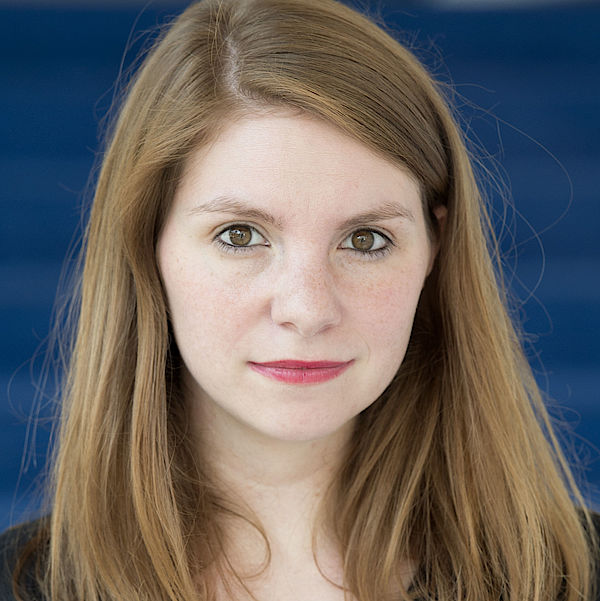
Mareike
Wink
Mareike Wink supports Brigitte Fassbaender's production of "Der Ring des Nibelungen" at the Tyrol Festival Erl. There, she has already made guest appearances for "Rusalka", "Le postillon de Lonjumeau" and "Francesca da Rimini".
Since 2013 Mareike Wink has been employed as a dramaturge at the Frankfurt Opera, where she has worked with directors such as David Hermann, Jens-Daniel Herzog, Nadja Loschky, Benedikt von Peter, Hans Walter Richter, R. B. Schlather, Lydia Steier, Katharina Thoma and Keith Warner, with conductors such as Martyn Brabbins, Dennis Russell Davies, Johannes Debus, Leo Hussain, Karsten Januschke, Eun Sun Kim, Erik Nielsen, Alexander Soddy, Sebastian Weigle and Lothar Zagrosek, and with composers such as Peter Eötvös, Helmut Lachenmann, Rolf Riehm, Manfred Trojahn and Vito Žuraj.
The reading of "Schlaues Füchslein" by Ute M. Engelhardt, which she accompanied, was awarded the 2016 Götz Friedrich Prize, and the Frankfurt premiere of three one-act operas by Ernst Křenek was celebrated as "Rediscovery of the Year 2018" at the International Opera Awards. She is also active as a guest dramaturg for the International Bach Academy Stuttgart. Mareike Wink studied music, theater and media studies as well as German language and literature in Frankfurt and Rome, and was a scholarship holder of the Richard Wagner Association Frankfurt.
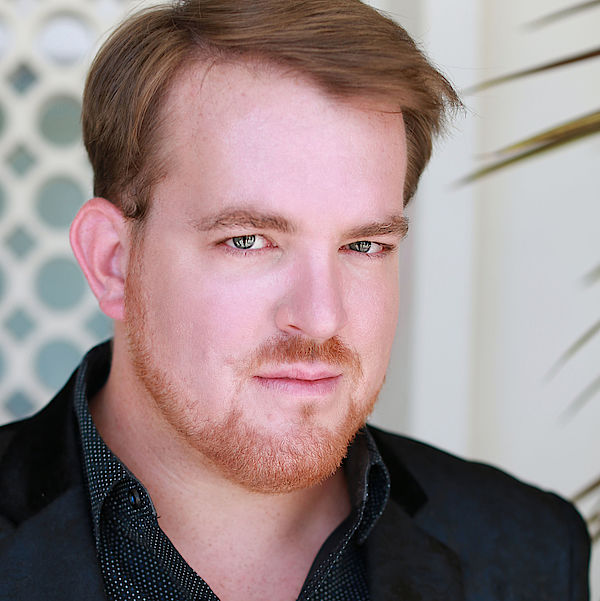
Clay
Hilley
Der Tenor Clay Hilley, der in der New York Times für seine „stimmliche Kraft, seinen klaren Klang und sein Durchhaltevermögen“ gelobt wurde, ist auf vielen internationalen Bühnen mit dem anspruchsvollsten Opernrepertoire aufgetreten. In der vergangenen Saison debütierte er an der Deutschen Oper Berlin in der Titelrolle von Wagners „Siegfried“ unter der Leitung von Sir Donald Runnicles in einer Neuinszenierung von Stefan Herheim. 2021 kehrte er als Siegfried in der „Götterdämmerung“ zurück. Neben seinem Debüt bei den Tiroler Festspielen Erl stehen aktuell Auftritte mit den Symphonieorchestern von Atlanta und Bilbao auf dem Programm. Zu den Höhepunkten der letzten Saison zählen Mahlers „Das Lied von der Erde“ mit dem Orchestra dell’Accademia Nazionale di Santa Cecilia unter der Leitung von Sir Antonio Pappano, eine konzertante Aufführung des Zweiten Akts von „Tristan und Isolde“ mit dem Orchester und Ballett der Norwegischen Nationaloper sowie die Rolle des Phoebus in Schmidts „Notre Dame“ am Theater St. Gallen. Clay Hilley verfügt über ein breit gefächertes Repertoire und hat mit Dirigent*innen wie Sir Andrew Davis, Mirga Gražinytė-Tyla, Nicola Luisotti, Yannick Nézet-Séguin und Nicole Paiement gearbeitet.
Simon
Bailey
Simon Bailey's recent roles include Don Pasquale at the Staatstheater Saarbrücken, Orest ("Elektra") at Oper Frankfurt and Mr Redburn ("Billy Budd") at the Musiktheater im Revier in Gelsenkirchen. Future plans include Balstrode ("Peter Grimes") and Don Bartolo ("Il barbiere di Siviglia") at ENO Baylis.
Recent engagements have brought him to Bilbao as the Wanderer ("Siegfried"), to the Théâtre Royal de la Monnaie in Brussels as David Strom in the world premiere of Defoort's "The Time of Our Singing," to the Staatsoper Stuttgart as The Judge of the Dead in "The Condemnation of Lucullus." as Handel's Achilla to the Theater an der Wien, as Klingsor ("Parsifal") to the Opéra National du Rhin in Strasbourg, as Kutuzov ("War and Peace") to Welsh National Opera and the ROH Covent Garden, and as Mozart's Leporello to the Staatstheater Wiesbaden and the WNO.
The British-born winner of the 2018 Wales Theatre Award is also in demand internationally as a concert singer and has continued to be invited to perform roles such as Méphistophélès ("La damnation de Faust"), Jochanaan ("Salome"), Mozart's Figaro and the four villains in "Les Contes d'Hoffmann" at such houses as Teatro alla Scala in Milan, Oper Vlaanderen and Theater Basel. At the Frankfurt Opera, where he was a member of the ensemble for many years, Simon Bailey sang Peter ("Hansel and Gretel"), Mr Redburn ("Billy Budd"), Gunther ("Götterdämmerung"), Klingsor, Gelone ("L'Orontea"), Don Magnifico ("La Cenerentola") as well as the main part of "Duke Bluebeard's Castle".
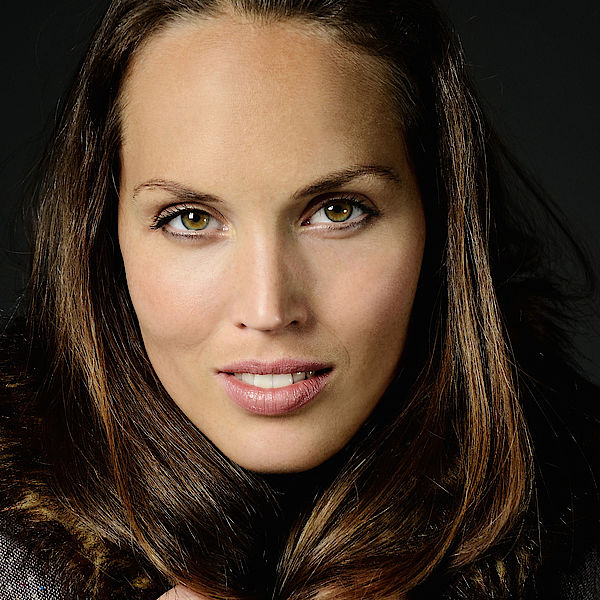
Irina
Simmes
Soprano Irina Simmes, who made her debut last summer at the Tyrol Festival Erl as Sieglinde ("Die Walküre"), now makes her debut as Gutrune.
She recently made a guest appearance as Pat Nixon ("Nixon in China") at Oper Dortmund, whose ensemble she previously belonged to and where she will return next season as Freia ("Das Rheingold"). As Violetta ("La traviata"), which she has already sung at various theaters, she was recently seen at the Aalto-Musiktheater Essen.
In 2019 Irina Simmes sang Gerhilde ("Die Walküre") at the Frankfurt Opera, after her first guest appearance there as Konstanze ("Die Entführung aus dem Serail") under the baton of Sebastian Weigle. Numerous other Mozart roles are in her repertoire: Pamina ("The Magic Flute"), Countess ("Le nozze di Figaro"), Fiordiligi ("Così fan tutte") and Donna Anna ("Don Giovanni"). At the Staatstheater in Karlsruhe she made guest appearances as Isolde in Avner Dorman's "Wahnfried" as well as in Mozart's "Lucio Silla".
Her repertoire includes Laura in Korngold's "Der Ring des Polykrates", Musetta ("La Bohème"), Rosalinde ("Die Fledermaus") and Micaëla ("Carmen"), but also rarities of the baroque (e.g. Pilade in Traetta's "Ifigenia in Tauride") as well as works of contemporary music theater such as Jost's "Rumor" or Harneit's "Abends am Fluss". Irina Simmes completed her vocal training at the Folkwang University of the Arts Essen and graduated from the opera studio of the Musiktheater im Revier Gelsenkirchen.
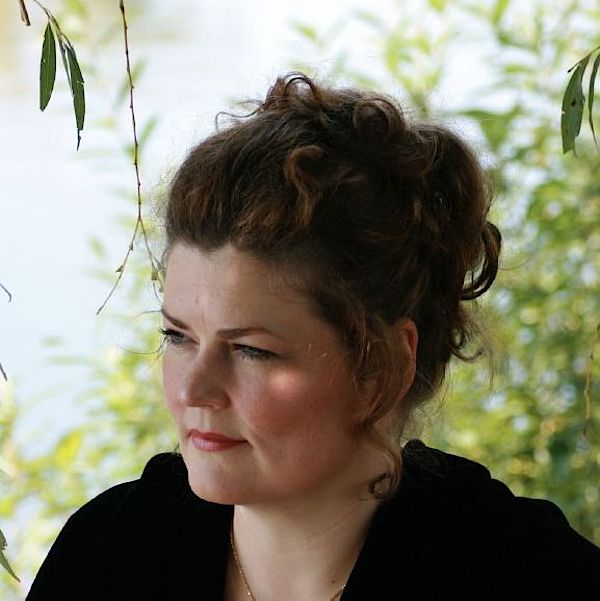
Christiane
Libor
Christiane Libor has sung roles from the youth to dramatic soprano repertoire at opera houses such as the Berlin, Dresden, Hamburg and Stuttgart State Operas, the Frankfurt Opera, the Zurich Opera, the Opéra Bastille in Paris and the opera houses of and the opera houses of Washington and Seattle.
She has worked with renowned orchestras and conductors such as Philippe Auguin, Marek Janowski, Philippe Jordan, Kurt Masur, Ingo Metzmacher, Marc Minkowski, Sebastian Weigle, Antoni Wit, Simone Young and Jaap van Zweden. Recent guest engagements include her debut as Turandot at the Staatstheater Karlsruhe, Leonore ("Fidelio") at the West Australian Opera in Perth under Asher Fisch and with the Los Angeles Philhamonic Orchestra under Gustavo Dudamel, and Brünnhilde ("Götterdämmerung") at the Staatsoper Stuttgart.
At Oper Leipzig, where she sang all three Brünnhilden for the first time in 2018, Christiane Libor will be heard next season as Wagner's Isolde and Strauss' Elektra. By now, the soprano has interpreted almost all Wagner roles in her field. A native of Berlin and winner of the O. E. Hasse Prize of the Berlin Academy of the Arts and the Salzburg International Mozart Competition, she studied at the Hanns Eisler Academy of Music with Anneliese Fried and continued to be taught by Dietrich Fischer-Dieskau and Brigitte Fassbaender. Since 2011 Christiane Libor has been a professor at the Hochschule für Musik in Karlsruhe.
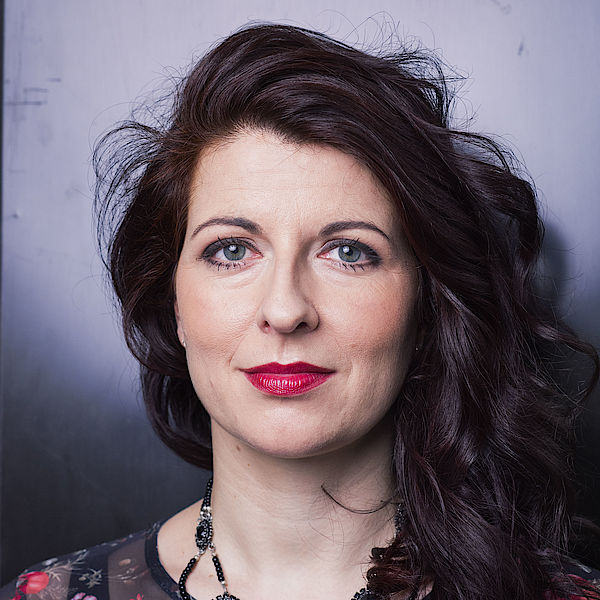
Dshamilja
Kaiser
Die Mezzosopranistin Dshamilja Kaiser ist seit 2017 Ensemblemitglied am Theater Bonn, wo sie große Erfolge als Carmen, als Schoecks Penthesilea, Ortrud in „Lohengrin“ sowie als Santuzza in „Cavalleria rusticana“ feierte. In der vergangenen Spielzeit gab sie bei den Tiroler Festspielen Erl ihr Rollendebüt als Fremde Fürstin in Dvořáks „Rusalka“. 2021 singt sie hier Wagners Fricka und Ortrud. An der Oper Frankfurt debütierte Dshamilja Kaiser 2019 als Adalgisa in „Norma“, womit sie zuvor bereits an Den Norske Opera in Oslo gastiert hatte, und verkörperte 2020 Madame Flora (Menottis „The Medium“). Als Roßweiße in „Die Walküre“ unter der Leitung von Daniel Barenboim war sie an der Berliner Staatsoper zu erleben. Engagements der Spielzeit 2020/21 führten sie u.a. als Lisa in Weinbergs „Die Passagierin“ an die Oper Graz und als Lady Macbeth in der Deutschen Erstaufführung von Pascal Dusapins „Macbeth Underworld“ an das Staatstheater Saarbrücken. Dshamilja Kaiser, die auch zweimal bei den Bregenzer Festspielen gastierte, ist Preisträgerin des Österreichischen Musiktheaterpreises 2015 in der Kategorie „Beste Nachwuchssängerin“. Zahlreiche Konzerte im In- und Ausland ergänzen ihr künstlerisches Schaffen und führten sie u.a. in den Wiener Musikverein. Nach ihrem Gesangsstudium an der Hochschule für Musik Detmold war Dshamilja Kaiser zunächst am Theater Bielefeld, anschließend von 2009 bis 2017 fest an der Oper Graz engagiert.
Rollen:
- Ortrud in "Lohengrin", Theater Bonn 2018
- Adalgisa in "Norma", Den Norske Oper Oslo 2018
- Lucrezia in "Beatrice Cenci", Bregenzer Festspiele 2018
- La Regina Gertrude in "Amleto", Bregenzer Festspiele 2016
- Dorabella in "Cosí fan tutte", Volksoper Wien 2014
Produktionen bei den Tiroler Festspielen Erl:
- Antonín Dvořák & Jaroslav Kvapil: "Rusalka"
Anthony Robin
Schneider
The Austrian-New Zealand bass Anthony Robin Schneider has already made guest appearances at the Tyrolean Festival in Erl as Fafner ("Das Rheingold") and Hunding ("Die Walküre").
In 2018/19 he made his debut as the Wirt in "Der ferne Klang" (CD on OehmsClassics) at Oper Frankfurt, of which he has been a member of the ensemble since 2019/20. In addition to this role, he sang Hans Schwarz ("Die Meistersinger von Nürnberg") and the title role of Handel's "Hercules" among others in the current season. In Frankfurt, he previously made his debuts as Ibn-Hakia ("Iolanta") and Panas ("The Night Before Christmas"; "Performance of the Year 2021/22") and was heard as Cirillo ("Fedora") as well as Heinrich der Vogler ("Lohengrin"), which he will embody at De Nationale Opera Amsterdam this winter.
Other roles in his repertoire include Bartolo ("Le nozze di Figaro") and Steward / Sergeant ("Lady Macbeth of Mzensk"), A Monk / Grand Inquisitor ("Don Carlo") and Sparafucile ("Rigoletto"). In February 2022, Anthony Robin Schneider returned to Houston Grand Opera as Sarastro / Speaker ("The Magic Flute"), whose opera studio the singer, who trained at the Academy of Vocal Arts in Philadelphia, graduated from.
Other guest engagements to date have included The Shadow of Hector ("Les Troyens") at the Vienna State Opera, Truffaldin ("Ariadne auf Naxos") at the Santa Fe Opera and with the Cleveland Orchestra, Baron / Grand Inquisitor ("Candide") also at Santa Fe, Mesner ("Tosca"), Fabrizio (Rossini's "La pietra del paragone"), and Death ("The Emperor of Atlantis") and Duc de Hoël ("Le vin herbé") at Wolf Trap Opera. Anthony Robin Schneider was a fellow of the Kiri Te Kanawa Foundation.
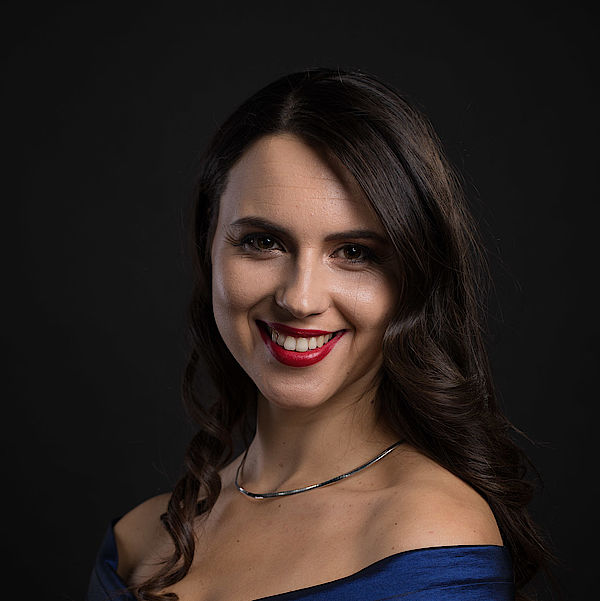
Mojca
Bitenc
Mojca Bitenc kehrt 2024/25 als Mrs. Alice Ford („Falstaff“), Mimì („La bohème“), Leonora („Il trovatore“) und Manon („Manon Lescaut“) an das Slowenische Nationaltheater für Oper und Ballett in Ljubljana zurück, wo sie nach ihrem Debüt als Euridice („Orfeo ed Euridice“) u. a. bereits als Donna Anna („Don Giovanni“), in der Titelpartie von Viktor Parmas „Ksenija“, als Antonia („Les contes d’Hoffmann“), Violetta („La traviata“), Mařenka („Die verkaufte Braut“), Pamina („Die Zauberflöte“), Nedda („I Paggliacci“) und Marguerite („Faust“) zu erleben war. 2023 gab die slowenische Sopranistin als Donna Anna ihr Debüt an der Oper Frankfurt. Bei den Bregenzer Festspielen gastierte sie mit großem Erfolg als Gräfin Almaviva („Le nozze di Figaro“), Micaëla („Carmen“) sowie in Dvořáks „Te deum“ mit den Wiener Symphonikern. Am Slowenischen Nationaltheater Maribor sang sie Liù („Turandot“), am Kroatischen Nationaltheater in Rijeka sang sie die Hauptpartie in Zoran Juranićs „Opera po Kamovu“ und bei der Sommeroper Alden Biesen Tatjana („Eugen Onegin“). Mojca Bitenc studierte Gesang an den Musikakademien von Ljubljana und Zagreb sowie Medizin an der Universität Ljubljana. Sie ist Preisträgerin zahlreicher renommierter Wettbewerbe, darunter die International Singing Competition Lav Mirski, die Ada Sari International Vocal Artistry Competition, der Internationale Mozartwettbewerb Salzburg und der Internationale Gesangswettbewerb Ferruccio Tagliavini.
Die slowenische Sopranistin Mojca Bitenc trat in Erl u.a. bereits im Neujahrskonzert 2022 auf. Am Slowenischen Nationaltheater für Oper und Ballett in Ljubljana war sie nach ihrem Debüt als Euridice („Orfeo ed Euridice“) u.a. als Donna Anna, in der Titelpartie von Viktor Parmas „Ksenija“, als Antonia („Les Contes d’Hoffmann“), Violetta („La Traviata“), Mařenka („Die verkaufte Braut“), Pamina („Die Zauberflöte“), Nedda („I Paggliacci“) und Marguerite („Faust“) erleben. Am Slowenischen Nationaltheater Maribor sang sie Liu („Turandot“) und trat bei der Sommeroper Alden Biesen als Tatjana („Eugen Onegin“) auf. Im Anschluss an ihren großen Erfolg als Gräfin Almaviva („Le nozze di Figaro“) bei den Bregenzer Festspielen kehrte sie als Micaëla und für Dvořáks „Te deum“ mit den Wiener Symphonikern dorthin zurück. Am Kroatischen Nationaltheater in Rijeka sang sie 2021 die Hauptpartie in Zoran Juranićs neuer Oper „Opera po Kamovu“. Mojca Bitenc studierteGesang an den Musikakademien von Ljubljana und Zagreb sowie Medizin an der Universität Ljubljana. Sie ist Preisträgerin zahlreicher renommierter Gesangswettbewerbe, darunter der International Singing Competition Lav Mirski, der Ada Sari International Vocal Artistry Competition, des Internationalen Mozartwettbewerbs Salzburg und des Internationalen Gesangswettbewerbs Ferruccio Tagliavini.

Ekin Su
Paker
Die türkische Sopranistin Ekin Su Paker gab in der vergangenen Saison als neues Mitglied des Opernstudios der Oper Frankfurt ihr Debüt als Barbarina („Le nozze di Figaro“). In dieser Partie war sie unlängst auch am Theater an der Wien zu Gast. Zuletzt debütierte sie als Sylvane („Die lustige Witwe“). Engagements als Adina und Giannetta („L’elisir d’amore“), Poppea („L’incoronazione di Poppea“), Blanche („Dialogues des Carmélites“), Celia („La fedeltà premiata“), Eurydike („Orpheus in der Unterwelt“), Anna Reich („Die lustigen Weiber von Windsor“), Despina („Così fan tutte“) und Adele („Die Fledermaus“) führten sie u.a. an das John McIntosh Arts Center London, die Kunstuniversität Graz sowie zum Oper im Berg Festival in Salzburg. Zudem war sie beim Woodhouse Opera Festival, beim Efes-Opern- und Ballettfestival in Ephesos, im Haus für Musik und Musiktheater Graz (MUMTH), am Leyla Gencer Opera and Art Center sowie am Opernhaus Süreya in Istanbul zu Gast. Ihre künstlerische Ausbildung begann Ekin Su Paker am Istanbul University State Conservatory und absolvierte anschließend ihren Master in Musiktheater an der Universität für Musik und darstellende Kunst in Graz. Sie ist Preisträgerin der Istanbul Baroque Festival Competition 2016 sowie Finalistin des Nationalen Wettbewerbs Junger Solisten der İzmir State Opera 2018 und des Siemens-Opernwettbewerbs Istanbul 2018. 2019 war die Künstlerin im Finale des Internationalen Gesangswettbewerbs Neue Stimmen der Bertelsmann Stiftung Gütersloh.
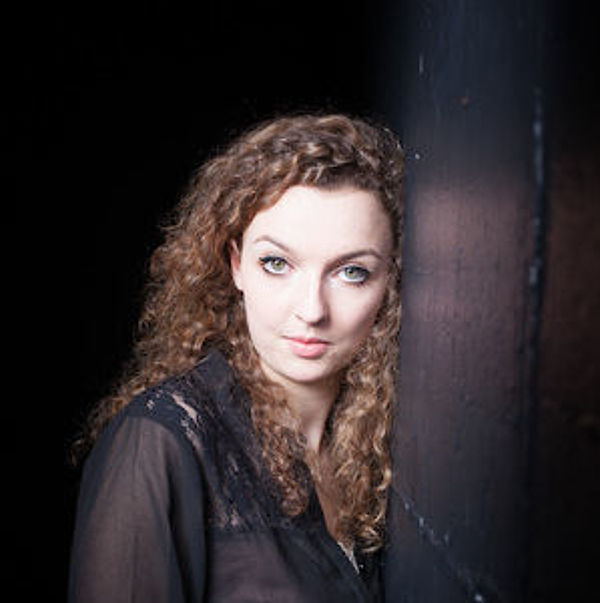
Florence
Losseau
Florence Losseau sang seit ihrem neunten Lebensjahr im Kinderchor des Staatstheaters am Gärtnerplatz. Sie studierte Gesang an der Hochschule für Musik und Theater München, belegte im Anschluss den Masterstudiengang Musiktheater an der Bayerischen Theaterakademie August Everding und baute darauf im Fach Liedgestaltung auf. Ihr Operndebüt gab sie 2011 als Annina in Verdis „La traviata“. Seitdem interpretierte sie Rollen wie u. a. Mozarts Zweiter Dame aus der „Zauberflöte“, Abuela aus der spanischen Oper „La vida breve“ von Manuel de Falla, Hänsel aus „Hänsel und Gretel“, Dido aus „Dido and Aeneas“ und Mercédès aus „Carmen“. Sie arbeitete mit Dirigenten wie Michael Brandstätter, Paolo Carignani, Karsten Januschke, Nicholas Kok, Alexander Liebreich oder Ulf Schirmer zusammen und besuchte Meisterkurse bei Axel Bauni, Helmut Deutsch, Angelika Kirchschlager, Dorothee Mields und Christopher Robson. Neben ihrer Tätigkeit als Opernsängerin ist Florence Losseau auch als Lied– und Oratoriensängerin aktiv. Sie war in der „LiederWerkstatt“ des Kissinger Sommers zu hören und ist Mitglied des Oberösterreichischen Opernstudios am Landestheater Linz. In Berlin gewann die Stipendiatin der „Christl und Klaus Haack Stiftung“ 2017 den zweiten Preis des Paula Salomon Lindberg Wettbewerbs an der Universität der Künste in Berlin.
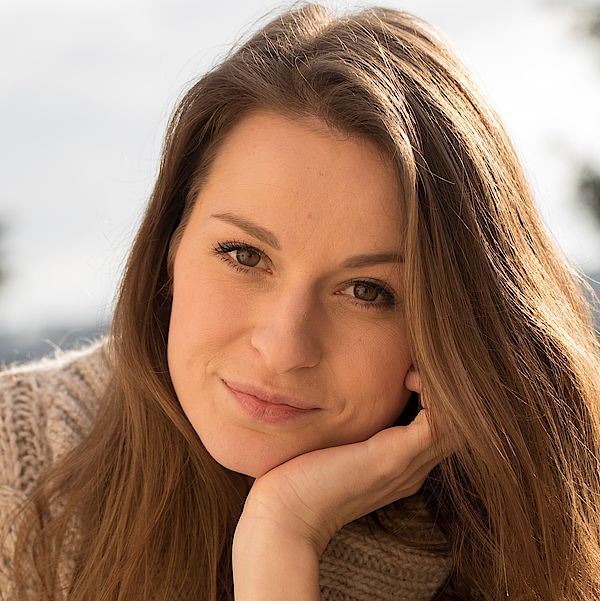
Corinna
Scheurle
Nach ihrem Bachelorstudium an der Universität der Künste in Berlin absolvierte sie ihren Master an der Theaterakademie August Everding in München bei Prof. KS Christiane Iven und war anschließend Mitglied des Internationalen Opernstudios der Staatsoper Unter den Linden, wo sie Partien wie Sandmännchen („Hänsel und Gretel“), Ines („Il trovatore“), Zweite Dame („Die Zauberflöte“) und Annina („La traviata“) verkörperte.
Am Nationaltheater München, wo sie zwei Spielzeiten als Ensemblemitglied wirkte, sang sie u. a. Rollen wie Lucienne („Die tote Stadt“) und Tisbe („La Cenerentola“). Seit der Spielzeit 2021/22 ist Corinna Scheurle festes Ensemblemitglied am Staatstheater Nürnberg und wird dort ihr Debüt als Octavian („Der Rosenkavalier“) und die Titelrolle in „Carmen“ geben.
Aktuelle Gastengagements umfassen Cherubino („Le nozze di Figaro“) an der Staatsoper Unter den Linden in Berlin und Dorabella in „Così fan tutte“ bei der Kammerakademie Potsdam. Bei den Tiroler Festspielen Erl stand sie „Rusalka“ auf der Bühne und sang bereits 2021 die Mezzosopranpartie im Weihnachtsoratorium
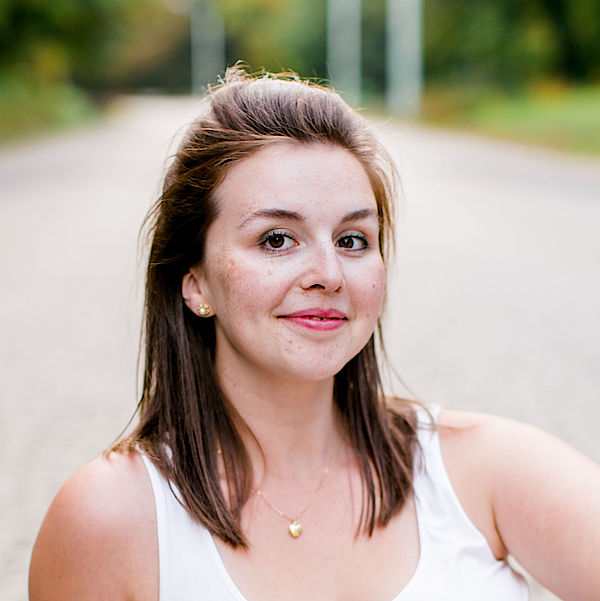
Anna-Katharina
Tonauer
Austrian mezzo-soprano Anna-Katharina Tonauer has been a member of the ensemble at the Staatstheater am Gärtnerplatz in Munich since the 2016/17 season, where she has sung roles such as Charlotte ("Werther"), Angelina and Tisbe ("La Cenerentola"), Hänsel ("Hänsel und Gretel"), Dorabella ("Così fan tutte"), Second Lady ("The Magic Flute"), Nancy ("Martha"), Maddalena ("Rigoletto"), Lucy ("The Threepenny Opera"), Olga ("Eugene Onegin"), Smeton ("Anna Bolena"), Rosina ("The Barber of Seville"), The Muse / Niklas ("The Tales of Hoffmann") and Cherubino ("Le nozze di Figaro").
Guest engagements have taken the young singer to the Pfalztheater Kaiserslautern and the Stadttheater Heilbronn in the title role of "La Cenerentola", to the Frankfurt Opera as Tisbe ("La Cenerentola"), to the Nationaltheater Mannheim as Rosina, to the Aalto Musiktheater Essen as Maddalena, to the Styriarte Graz as Primavera ("La Gloria di Primavera") and to Salzburg, Linz, Graz and Vienna as Mozart's Dorabella.
Anna-Katharina Tonauer studied at the University of Music and Performing Arts Vienna with Gabriele Fontana and Karlheinz Hanser. She received groundbreaking impulses in master classes from Brigitte Fassbaender, Anne Sofie von Otter, Helmut Deutsch and Leopold Spitzer, among others. In 2014 she was awarded the first prize at Musica Juventutis, endowed with a song recital at the Vienna Konzerthaus.
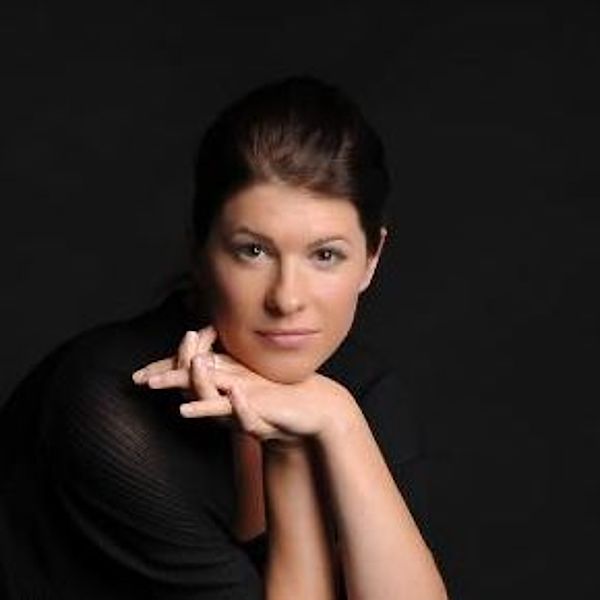
Stefanie
Irányi
Die Mezzosopranistin Stefanie Irányi studierte in München und debütierte bereits während ihres Studiums am Opernhaus in Turin. Mehrere Engaments folgten in wichtigen Häusern wie u.a. Mailänder Scala, Musikverein in Wien, Teatro la Fenice in Venedig, Teatro San Carlo in Neapel, Théatre Champs-Elysée in Paris.
Mit großem Erfolg wurde dieses Jahr ihr Debut als Judith in Béla Bartóks Herzog Blaubarts Burg in der Kölner Philharmonie, zusammen mit dem SWR unter Leitung von Jukka Pekka Saraste gefeiert.
Engagements in der nächsten Saison führen sie u.a. nach Australien mit Verdis Requiem, auf eine Europa Tournee mit dem Mahler Youth Orchestra unter Daniel Harding mit Mahlers 8. Sinfonie, mehrere Konzerte mit Beethovens Missa Solemnis unter nahmhaften Dirigenten wie Thomas Hengelbrock. Musikalischer Höhepunkt wird ihre erste “Brangäne” in Tristan und Isolde am Opernhaus in Bari sein.
CD Erscheinungen belegen Irányis künstlerische Tätigkeit wie z.B. die Solo CD “Lamenti”, das “Rheingold” von Richard Wagner unter Sir Simon Rattle oder Brahms Duette mit Michael Volle und Helmut Deutsch.
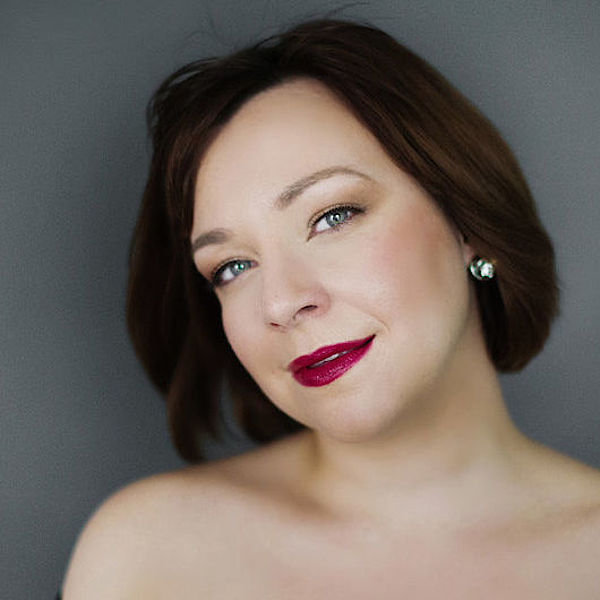
Marta
Herman
Die gebürtige Kanadierin Marta Herman schloss ihr Gesangsstudium an der University of Toronto Opera School bei Mary Morrison ab. Nach ihrer Zeit als Mitglied des Opernstudios an der Oper Frankfurt wurde sie Ensemblemitglied am Staatstheater Kassel. Dort debütierte sie u.a. als Suzuki („Madama Butterfly“), Bradamante („Alcina“), Erste Norn („Die Götterdämmerung“), Flosshilde („Das Rheingold“ und „Die Götterdämmerung“), Grimgerde, Hänsel („Hänsel und Gretel“), Brigitta („Die tote Stadt“), Cherubino („Le nozze di Figaro“) und Dritte Dame („Die Zauberflöte“). Zudem erarbeitete sich die Mezzosopranistin ein Repertoire selten gespielter Barockwerke wie „Antigona“ (Emone) und „Los Elementos“ (Tierra) sowie Altpartien einiger Bachkantaten. Regelmäßig gastiert sie an der Oper Leipzig, so auch aktuell als Grimgerde. Gastengagements führten sie als Mozarts Zweite Dame, als Dritte Nymphe („Rusalka“) und für Martinůs „Julietta“ an die Oper Frankfurt, für Poulencs „Les mamelles de Tirésias“ an De Nationale Opera, als Haydns Linetta ans Salzburger Landestheater, weiterhin zum Toronto Luminato Festival und zur Kammeroper Schloss Rheinsberg. Als Interpretin Neuer Musik war Marta Herman bei den Darmstädter Ferienkursen, in der Tonhalle Zürich, beim tonArt Festival Esslingen und mit dem Stuttgarter ExVoCo Ensemble zu erleben. Marta Herman ist u.a. Preisträgerin der Solti Foundation.
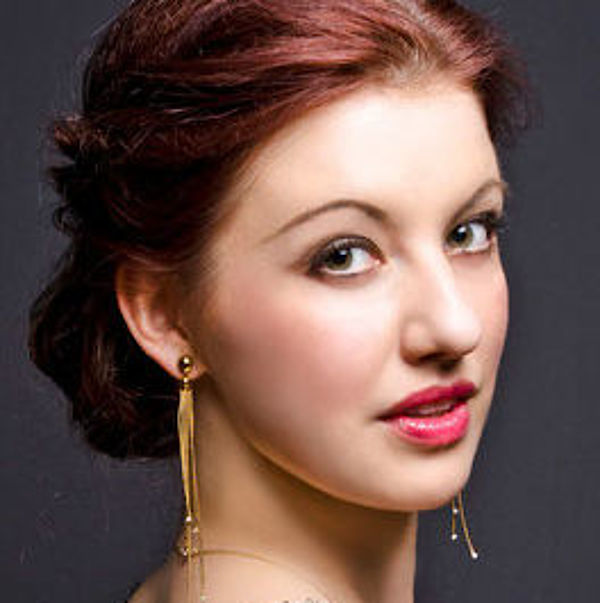
Ksenia
Leonidova
Die Mezzosopranistin Ksenia Leonidova war bisher u.a. als Maddalena in „Rigoletto“ beim Festival Oper Schenkenberg in der Schweiz, als Carmen an der Staatsoper Jekaterinburg, am Tiroler Landestheater Innsbruck und an der boxopera Zürich, als Suzuki („Madama Butterfly“) und Santuzza („Cavalleria rusticana“) auf Gut Immling sowie als Flosshilde („Das Rheingold“) und Schwertleite („Die Walküre“) am Staatstheater Nürnberg zu erleben. Sie sang Waltraute in Wagners „Die Walküre“ unter Kent Nagano mit dem Russian National Orchestra und Olga in „Eugen Onegin“ am Tianqiao Opera Theatre in Beijing. Die in Russland geborene Ksenia Leonidova absolvierte ihr Gesangsstudium am Moskauer Staatskonservatorium P. I. Tschaikowski und an der Universität Mozarteum Salzburg. Entscheidende Impulse erhielt sie zudem in Meisterkursen bei Elena Obraztsova. Ksenia Leonidova wurde mit zahlreichen internationalen Preisen ausgezeichnet, u.a. mit dem Ersten Preis bei der International Competition of mezzo-sopranos in memory of Fedora Barbieri in St. Petersburg 2012, beim Internationalen Wettbewerb Ferruccio Tagliavini in Deutschlandsberg (in Zusammenarbeit mit der Oper Graz) und bei der International Vox Artis Voice Competition in Sibiu in Rumänien.